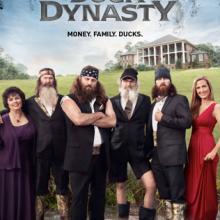Paul
Most of the women I know mourn the loneliness, the lack of physical touch, the empty half of the bed, and the “table for one, please” that come with being single. I know from experience how easy it is to live as a lady in waiting — waiting for a man to come along and rescue you from the boredom and loneliness of life, waiting for a man to validate you as an adult, waiting for a relationship to unlock the door to opportunities like church leadership, full-time ministry, entrepreneurship, foster care, financial stability, or international travel.
I know many women whose prayers mainly consist of praying for God to bring them a spouse, and whose waking thoughts often wander into the injustice and unfairness of singleness. They wonder if God really knows how much they long for a husband and a family. They keep telling God that if He’ll only grant them a mate, then they’ll be content and more able to obey.
But the Bible — and most of church history — affirms the benefits of being single. Paul says it’s preferable because you can travel lightly and give yourself more fully to ministry. Valentine’s Day itself was named after a saint who was single, and was martyred for his faith on Feb. 14, 270 A.D.
There is no question that our nation is currently deeply divided about a great many issues. In our effort to enshrine him, some may have lost sight that Dr. Martin Luther King Jr. too addressed a nation that was divided. With all the media focus on the 50th anniversary of the Kennedy assassination this past fall, the 50th anniversary of another great national tragedy received little notice. On September 15, 1963, white racists bombed the 16th Street Baptist Church in Birmingham, Ala., killing four young African-American girls who were attending Sunday school.
“Jesus was a radical who welcomed everyone and criticized powerful leaders who oppressed the poor. Jesus was crucified because he was a political threat. But the Apostle Paul was a conservative missionary who misunderstood Jesus and was anti-woman, pro-slavery, and anti-gay.”
That seems to sum up how many progressive Christians view Paul. But are such views justified by the biblical record? Or are there other ways to understand the zealous Pharisee who became an apostle to the Gentiles?
IN THE EARLY 1970s, I came across an article on Jesus’ women disciples in the Christian social justice magazine The Other Side. I was shocked. I had attended church all my life; how come I never noticed those women disciples?
What I didn’t know then was that a renewed “search for the historical Jesus” was underway. Applying the ever-developing insights of sociology, anthropology, and archaeology, scholars were investigating the socio-economic and political aspects of life in first century Palestine. How did Jesus fit into his historical context? As a peasant healer, how did he challenge the Roman occupation and their clients, the chief priests at the temple in Jerusalem?
It takes a while for new insights from biblical research to reach lay Christians. This is further delayed if church leaders are suspicious of intellectual elitism and fearful some of their parishioners might “lose their faith.”
I know. We’re all a little fatigued about the Duck Dynasty and freedom of speech controversy. As many have pointed out, everyone has been free during this controversy. Phil Robertson was free to make his statement to GQ. GQ was free to publish it. A&E was free to suspend Robertson for making comments that it thought hurt its image. And, despite that justification, A&E is free to air Duck Dynasty marathons on Dec. 24 and 25. (Yes, on Christmas Day you can watch 12 1/2 hours of Duck Dynasty. A&E is taking this controversy straight to the bank!) We are free to watch, or to not watch, future episodes of Duck Dynasty. We are all free to take sides. And bloggers are freely adding to our Duck Dynasty fatigue by writing endless blog posts.
This blogger asks for your forgiveness in writing yet another post that adds to our fatigue. So I’ll keep this brief.
There is something about freedom that we are missing in this debate, especially from a Christian point of view. When it comes to freedom, we want to fight for the freedom to do or say whatever we want. This is the highest point of freedom in the United States. It’s a freedom that is based on freedom for individual rights. It’s a freedom that says that I should have the right to say whatever I want without any negative consequences.
The Beatles first performed “All You Need Is Love” in 1967 as part of an “Our World” global television link, the first of its kind. The song was perfect for the occasion and became a hit. It’s got a catchy lyric and the chorus makes for an interesting debate even today.
Is it true that all we really need is love?
Many of us don’t feel that way. Many of us have a lot of other things filling our lists of what we need and value the most: self-sufficiency, independence, money, privilege, career advancement, our country, our family, our religion.
Many religions don’t see it that way, either. They dote on theological constructs and codes of conduct for their followers. They devise lists of who’s in God’s favor and who is not. Their do-and-don’t lists rarely say much about love and its ramifications.
They love rules instead.
As people of faith, we sometimes don’t take time to prepare ourselves for what is ahead. With so many things vying for our time and attention, it is difficult to educate ourselves about all facets of critical matters. Even in our relationship with God, we gloss over important details that will guide us into a closer walk and become content with a distant half-hearted relationship. However, a casual walk with God is not one we should settle for. By delving into God’s Word, we are able to draw upon God’s wisdom for guidance and find a deeper relationship with God as we travel through this journey of life.
In a similar fashion, we cannot settle for casual knowledge of the Affordable Care Act, which is now upon us and “gives Americans unprecedented information about the health plan choices in their own communities.” The Kaiser Family Foundation reports in a recent poll that 51 percent of all Americans are still unsure about how the ACA will affect them. 42 percent of Americans thought that Congress had overturned the act or that the Supreme Court had ruled it unconstitutional. And, many Americans worry that they will have to shell out more money due to the new health reform law. This uneasiness and misinformation certainly warrants a closer look as we journey through the multiple avenues of the Affordable Care Act.
The apostle Paul calls the church in Corinth a body — and that’s political language: “God has arranged the parts in the body, every one of them, just as he wanted them to be … As it is, there are many parts, but one body” (1 Cor. 12:18-20).
As Dale Martin argues in his book The Corinthian Body, Paul gets his language about the social body, the political body, from other Greco-Roman speeches and letters. He uses a style of writing and speaking called a “concord” — homonoia in Greek. Politicians would give speeches or write letters trying to convince the diverse people of the city to unite in a common project, to share the same goals for society, to share a common politics. In these “concord” addresses, politicians would call the society a body, just like Paul does in his letter to the divided church in Corinth. We are one body, politicians would say, so we need to act accordingly. We are one — united, bound together. Of course, politicians only made these speeches when they needed to: that is, when dissatisfied segments of society wanted to revolt (see Martin, Corinthian Body, 38-47).
I love food. I love food even more when it's shared with people. Some of my fondest memories with friends and family happened while sharing food. My husband and I shared our first date over a meal, and we got engaged over a meal. There's something about sitting around a table partaking in sustenance for our bodies that also fills our soul and our hearts. That's probably why I love communion so much.
So I was struck by Paul’s anger over food in 1 Corinthians 11. Granted, Paul comes off angry in other letters as well, but this one I decided to linger on for awhile because of verse 27: "Whoever, therefore, eats the bread or drinks the cup of the Lord in an unworthy manner will be answerable for the body and blood of the Lord."
Paul's letter is directed to a community in Corinth that was made up of the poor, the working class, and the rich. They lived together, shared communion with each other, and sought to be a community that reflected Christ. Now, this doesn’t seem too different from what we do at church today. But unlike how we celebrate communion — as it’s own “event” during service — for the 1st century Christians, communion was part of a real meal.
So what could be so "unworthy" about this shared meal?
What was most telling about the disagreement between the two men was their discussion of Luke 4. Mohler argued the passage should be understood in light of how he interpreted the preaching and teaching of Paul and the other apostles. This means that when Jesus said that he came to bring good news to the poor that good news was personal salvation.
Wallis argued that yes, personal salvation is one part of that good news, but that the other part is the Kingdom of God breaking into the world and transforming societal relationships as well. When the Gospel is proclaimed, it is good news for a poor person's entire being, community and world -- not just his or her soul.
First, it was encouraging to hear Mohler spend a lot of time emphasizing that working for justice is essential to fulfillment of the Great Commission. Throughout the night he repeated his concern that a lot of Churches are REALLY bad at making disciples who actually do the things Jesus told us to do. As the president of one of the largest seminaries in the world, it will be interesting to see if he is able to train a generation of pastors who will do things differently. My concern is that he is missing the connection between his theology and the failure of Christians to actually do justice.
Increasingly, in meetings focused on a wide variety of human tragedies, I hear these words: "What are you doing here? I didn't think evangelicals cared about these things."
I understand those comments. I grew up in a form of Christianity in which "saving souls" was pretty much all that mattered. The God I discovered in that church was a harsh, demanding tyrant; I knew that if I wanted to earn God's love I would have to be very good, follow all the rules, and work very hard. As a devout adolescent I did that. As a young pastor's wife I did that.
Unfortunately, I worked a little too hard and eventually became utterly exhausted, seriously depressed, and physically sick. That plunged me into a total life crisis in which I felt compelled to give up the God of my childhood.
Fortunately, a wise friend said to me, "For a while, forget everything you've ever thought about Christianity; forget the Old Testament; forget Paul and the epistles-and just read Jesus."
So for months -- for years actually -- I just read Jesus. And slowly but surely, Jesus reshaped my understanding of what it meant to be a Christian.
 The puzzle here is not that readers of the Bible would tilt toward the political left. That, for me, as well as for thousands of other American evangelicals, is self-evident. Jesus, after all, summoned his followers to be peacemakers, to turn the other cheek, to welcome the stranger and to care for “the least of these.” He also expressed concern for the tiniest sparrow, a sentiment that should find some resonance in our environmental policies.
The puzzle here is not that readers of the Bible would tilt toward the political left. That, for me, as well as for thousands of other American evangelicals, is self-evident. Jesus, after all, summoned his followers to be peacemakers, to turn the other cheek, to welcome the stranger and to care for “the least of these.” He also expressed concern for the tiniest sparrow, a sentiment that should find some resonance in our environmental policies.
No, the real conundrum lies in the subtitle the editors of Christianity Today assigned to Franzen’s article, which was titled, “A Left-Leaning Text.” Adjacent to a picture of a Bible tilted about 45 degrees to the left, the editors added the subtitle: “Survey Surprise: Frequent Bible reading can turn you liberal (in some ways).”
The fact that anyone should register surprise that the Bible points toward the left should be the biggest surprise of all.
Wall Street has been devastating Main Street for some time. And when the politicians -- most of them bought by Wall Street -- say nothing, it's called "responsible economics." But when somebody, anybody, complains about people suffering and that the political deck in official Washington has been stacked in favor of Wall Street, the accusation of class warfare quickly emerges. "Just who do these people think they are," they ask. The truth is that the people screaming about class warfare this week aren't really concerned about the warfare. They're just concerned that their class -- or the class that has bought and paid for their political careers -- continues to win the war.
So where is God in all of this? Is God into class warfare? No, of course not. God really does love us all, sinners and saints alike, rich and poor, mansion dwellers and ghetto dwellers. But the God of the Bible has a special concern for the poor and is openly suspicious of the rich. And if that is not clear in the Bible nothing is.
In Galatians 5:19-20, Paul lists the "works of the flesh," contrasting them to the "fruit of the Spirit" immediately thereafter (Gal. 5:22-23). Among the works of the flesh are hostility, quarreling, jealousy, outbursts of anger, selfish ambition, dissension, and division. Another translation puts it, "People become enemies and they fight; they become jealous, angry, and ambitious. They separate into parties and groups ... I warn you now as I have before: those who do these things will not possess the kingdom of God."
[Editor's Note: In anticipation of the anniversary of the March on Washington on August 28, 1963, God's Politics will feature a series of posts on the legacy of Dr. Martin Luther King.







